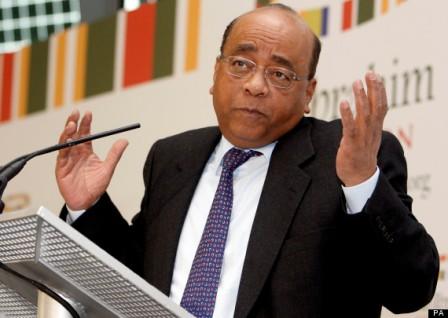The Mo Ibrahim Foundation, an International Organisation, on Tuesday, said the future of Africa would depend on its ability to harness the energy and meet the expectations of its young people.
The Director of Strategic Communications of the foundation, Sophie Masipa, made the remark in a statement in Abuja.
Masipa noted that the London-based foundation planned to discuss the topic: “Africa at a Tipping Point’’ during its forum scheduled for Marrakech, Morocco on April 4.
She stated that 60 per cent of the continent’s population was already under 25 years of age, and the number would rise to 452 million by 2050.
She added that “too many young Africans feel devoid of economic prospects and robbed of any say on the future of their own continent.
“The commodity cycle may have fuelled GDP growth for many African countries but it has created almost no jobs.
“Over the last 10 years, while Africa’s real GDP has grown at an annual average of 4.5 per cent, youth unemployment levels remained high.’’
The director stated that in spite of being the second-largest African economy, South Africa was not able to provide jobs for more than half of its youth population.
She noted that “young people spend more years in school but only a few have been effectively equipped with the skills the economy need.
“In spite of having some of the most educated population, with gross enrollment ratios in tertiary education, Egypt and Tunisia have some of the highest youth unemployment rates on the continent.
“Also, free and fair elections have indeed multiplied over the last decade, but voter turnout is declining and scepticism about elected representatives is growing, especially among the young people.
“Disenchantment with democracy and the lack of economic opportunity form a `toxic brew’, bound to strengthen the appeal of migration and violent extremism.
“Terrorism has become a well-organised multi-billion dollar criminal enterprise with growing control over drugs trade, human trafficking and other parts of the black market.’’
According to her, the energy and ambitions of Africa’s young people is a great resource and the best hope for strengthening the continent’s progress.
She, however, said that the youths’ expectations could turn into frustration and anger, “unless they find a job and get a chance to influence their own future.’’
She explained that the focus of the foundation’s forthcoming Marrakech forum “Africa at a Tipping Point’’ was to brainstorm on whether the continent would continue to rise or fall back and to discuss leadership and governance.
Speakers expected to make presentation at the forum include Mr Akinwumi Adesina, the President of African Development Bank, Mr Kofi Annan, former Secretary-General of the United Nations, Aliko Dangote, President and CEO, Dangote Group and Amina Mohammed, Deputy Secretary-General of the United Nations.
Also to make presentation were the Emir of Kano, Lamido Sanusi and
Ngozi Okonjo-Iweala, former Minister of Finance.
Established in London in 2006, the Mo Ibrahim Foundation publishes the Ibrahim Index of African Governance, ranking the performance of all 54 African countries.
Until 2009, the Index took into account only the 48 countries in Sub-Saharan Africa.
The foundation offers African master students and postgraduates scholarships at University of Birmingham, SOAS, and London Business School.
The scholarships are on topics of International Development at University of Birmingham, Governance of Development in Africa at SOAS, and an MBA at London Business School.
Born in Sudan in 1946 to a Nubian family, Mo Ibrahim and his family moved to Egypt when he was young.
He earned a Bachelor of Science from Alexandria University in Electrical Engineering and returned to Sudan and started working for Sudan Telecom and then moved to England and earned a master’s degree from University of Bradford in Electronics and Electrical Engineering, and a PhD from University of Birmingham in Mobile Communications.

